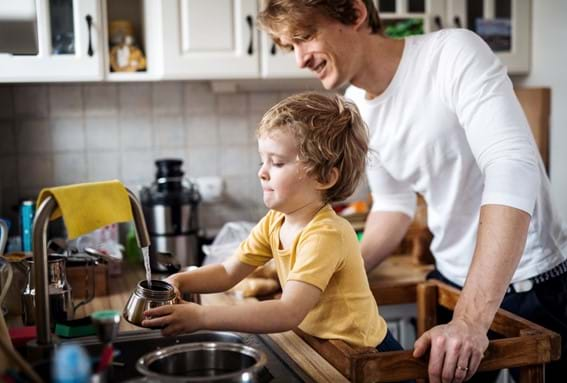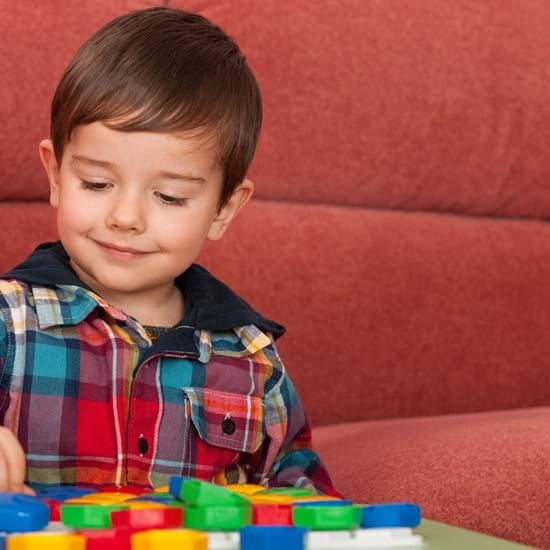
How can I help my child develop self-confidence?
Self-confidence is a key element in the harmonious development of our children. It’s the engine that drives their aspirations, their dreams and everything that matters to them. At every age, it’s imperative to cultivate this essential facet of personality, as it influences the way our children perceive the world and face life’s challenges. This process can begin at an early age, and as parents, we play a crucial role in building the self-confidence that will enable our children to reach their full potential.
What is self-confidence?
According to the Larousse dictionary, self-confidence is a “feeling, [an] awareness of one’s own worth, from which one draws a certain assurance.” Recognizing our own worth is the first step in developing this confidence, and as parents, we are in the best position to guide our children in this crucial area.
Why is a child’s self-esteem important?
Self-confidence plays a pivotal role in a child’s emotional, social and cognitive growth. It influences our ability to make decisions, meet challenges, interact with others and adapt to different situations. Well-established self-confidence is a precious asset that will accompany a child throughout their life.
Self-confidence shapes children’s perception of themselves and the world around them. It allows them to explore, learn, socialize and build healthy relationships. When children have self-confidence, they are more likely to meet challenges with determination, persevere in the face of adversity and develop a positive sense of identity.
What are the signs of a child’s lack of self-confidence?
It’s important to watch out for the telltale signs of a child’s lack of self-confidence. These signals can include a reluctance to undertake tasks alone, a constant need for assistance or expressions of doubt about one’s own abilities.
Already a customer? Go to the “Accompanying” section of your Client Space to take advantage of all the Nanny Secours offers and much more1!
How can I help my child develop self-confidence?
1. Provide a stable schedule for them
Establishing a stable routine will give your child a sense of security. The predictability of their daily environment will help boost their self-confidence, as your child will feel safe and be able to anticipate what’s going to happen.
2. Answer questions honestly
When your child asks questions, answering honestly is a way of reinforcing your credibility in their eyes. Being able to count on sincere answers will foster your child’s confidence in you and in themselves.
3. Encourage learning and reward success
Actively encouraging your child’s learning and congratulating them on their successes are essential elements in the development of their self-confidence. Your child’s successes, big or small, will help build a positive self-image.
4. Keep your commitments to your child
Parents are crucial role models for their children. Respecting the commitments you make to your child, keeping your promises, carrying out planned activities with them and expressing your emotions authentically will strengthen their trust in you and set a positive example.
5. Identifying signs of self-confidence in children
Self-confidence is expressed in many different ways. It’s essential to recognize the signs that your child is developing strong self-confidence. These signs include a desire to accomplish tasks alone, pride in sharing their creations, perseverance in the face of challenges and relaxing while learning.
6. Dare to work on your own lack of confidence as an adult
Our children are often the result of what we consciously and unconsciously teach them. Children are unlikely to be brimming with self-confidence if their parents have low self-esteem. Having children invariably means working on yourself, so dare to take personal steps to develop your own confidence. You’ll be a role model for your child and you’ll feel better about yourself!
By adopting these practices, you’ll be actively contributing to the healthy development of your child’s self-confidence, laying the foundations for future success. Here’s a series of books written by Germain Duclos, one of Quebec’s leading authorities on self-esteem. They’re all equally interesting and will give you even more tools to work with.
- L’estime de soi, un passeport pour la vie
- Quand les tout-petits apprennent à s’estimer…
- L’estime de soi de nos adolescents
- Le sentiment d’infériorité chez l’enfant
Enjoy your reading!
Pascale Fortin, Family Counsellor
Hélène Fagnan, Family Coach (mise à jour en février 2024)
Members du Nanny secours Network
(Updated - 1st published December 9, 2019)
1. Certain conditions and limitations apply. Promotions, benefits and other advantages of the accompanying services are subject to change without notice and may not be available in certain regions.



